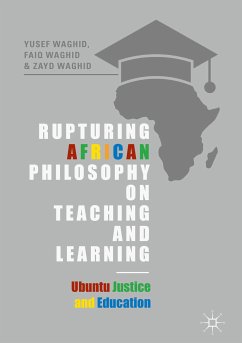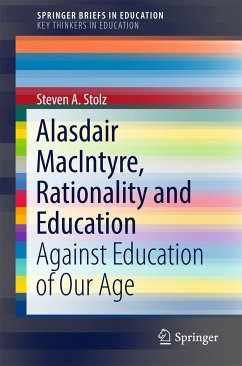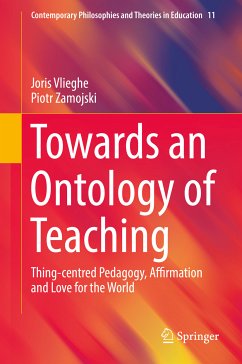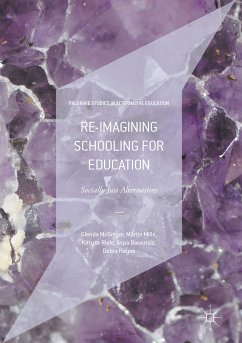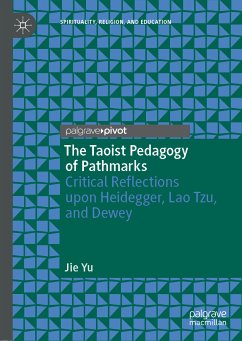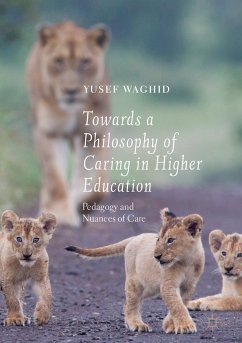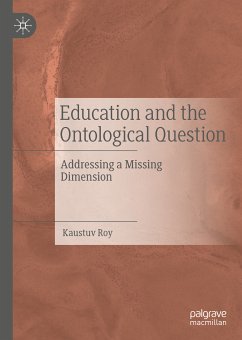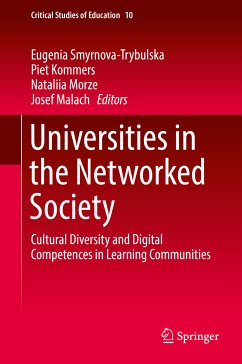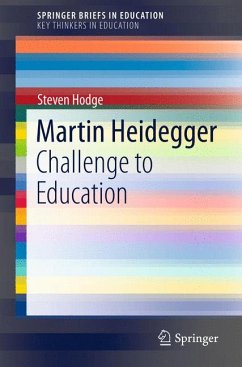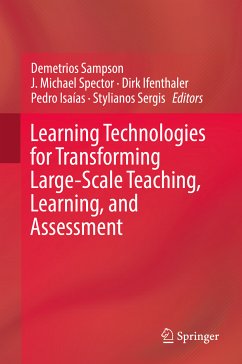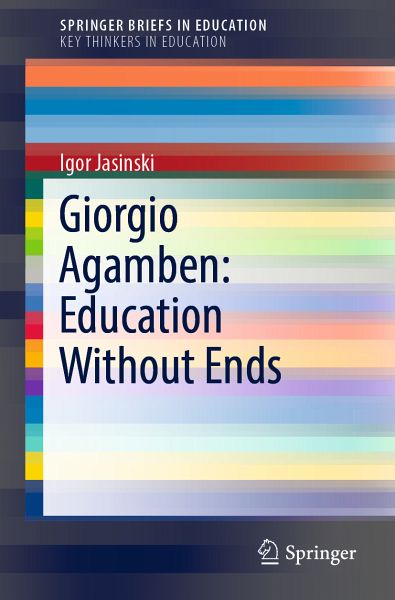
Giorgio Agamben: Education Without Ends (eBook, PDF)
Versandkostenfrei!
Sofort per Download lieferbar
40,95 €
inkl. MwSt.
Weitere Ausgaben:

PAYBACK Punkte
20 °P sammeln!
Italian critical theorist Giorgio Agamben may be best known for his political writings concerning the curtailing of privacy rights in the wake of 9/11 and the status of prisoners of war and refugees. Yet, casting him primarily as a political theorist is misleading given his significant contributions to the fields of linguistics, literary theory, philosophy, aesthetics, and religious studies. This book provides the first ever comprehensive introduction to Agamben's work as it pertains to the field of education. Written in a clear and accessible style, Giorgio Agamben: Education without Ends is ...
Italian critical theorist Giorgio Agamben may be best known for his political writings concerning the curtailing of privacy rights in the wake of 9/11 and the status of prisoners of war and refugees. Yet, casting him primarily as a political theorist is misleading given his significant contributions to the fields of linguistics, literary theory, philosophy, aesthetics, and religious studies. This book provides the first ever comprehensive introduction to Agamben's work as it pertains to the field of education. Written in a clear and accessible style, Giorgio Agamben: Education without Ends is an invaluable resource for anyone interested in thinking education beyond its current standardized forms.
The first part of the book creates a context by highlighting formative experiences in Agamben's biography that reflect a particular idea of education on the threshold between life and work. The second part introduces the notions of infancy, study, community, and happiness, and discusses their relevance with regard to key issues in educational theory and practice. The third part shows how conceptual constellations based on Agamben's work can inspire studious practices within the spatial, temporal, and curricular infrastructure of educational institutions as they exist today.
The first part of the book creates a context by highlighting formative experiences in Agamben's biography that reflect a particular idea of education on the threshold between life and work. The second part introduces the notions of infancy, study, community, and happiness, and discusses their relevance with regard to key issues in educational theory and practice. The third part shows how conceptual constellations based on Agamben's work can inspire studious practices within the spatial, temporal, and curricular infrastructure of educational institutions as they exist today.
Dieser Download kann aus rechtlichen Gründen nur mit Rechnungsadresse in A, B, BG, CY, CZ, D, DK, EW, E, FIN, F, GR, HR, H, IRL, I, LT, L, LR, M, NL, PL, P, R, S, SLO, SK ausgeliefert werden.



